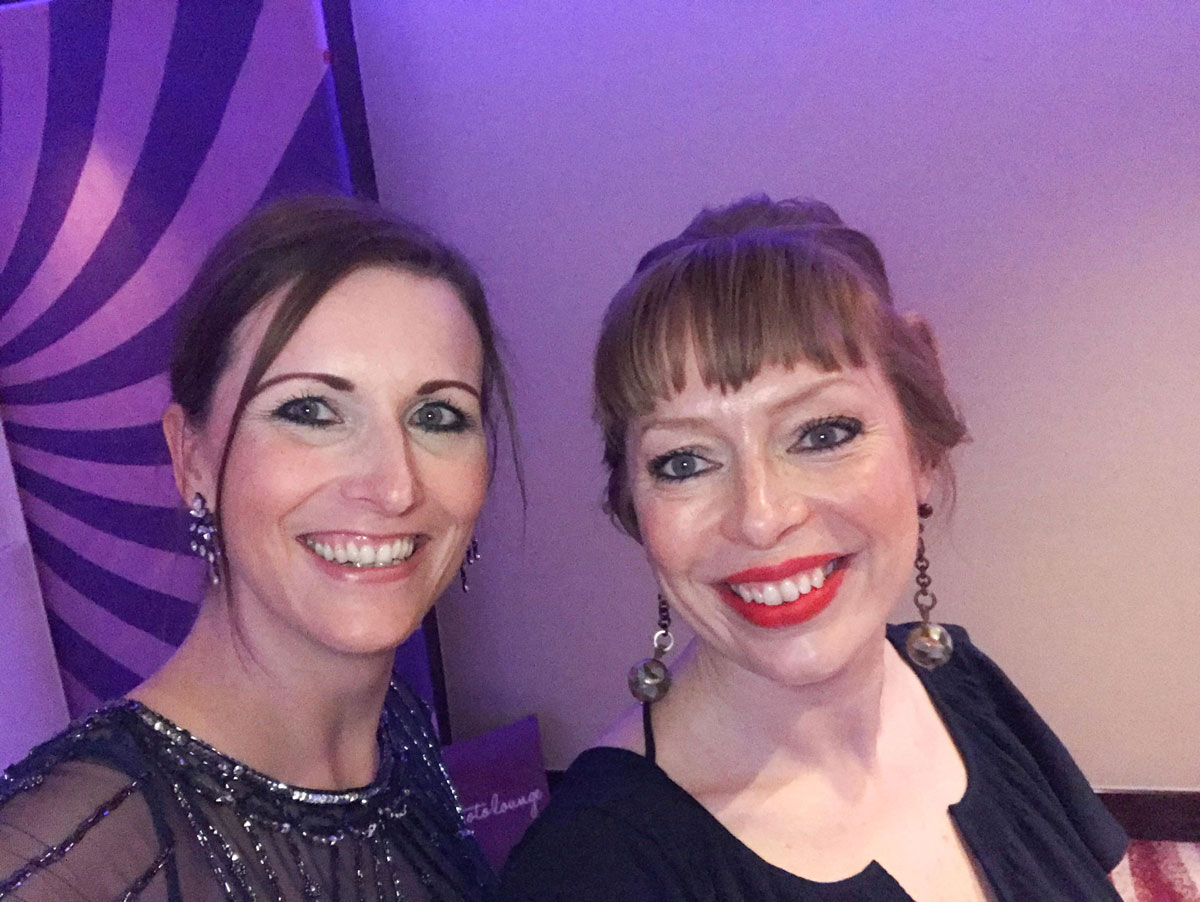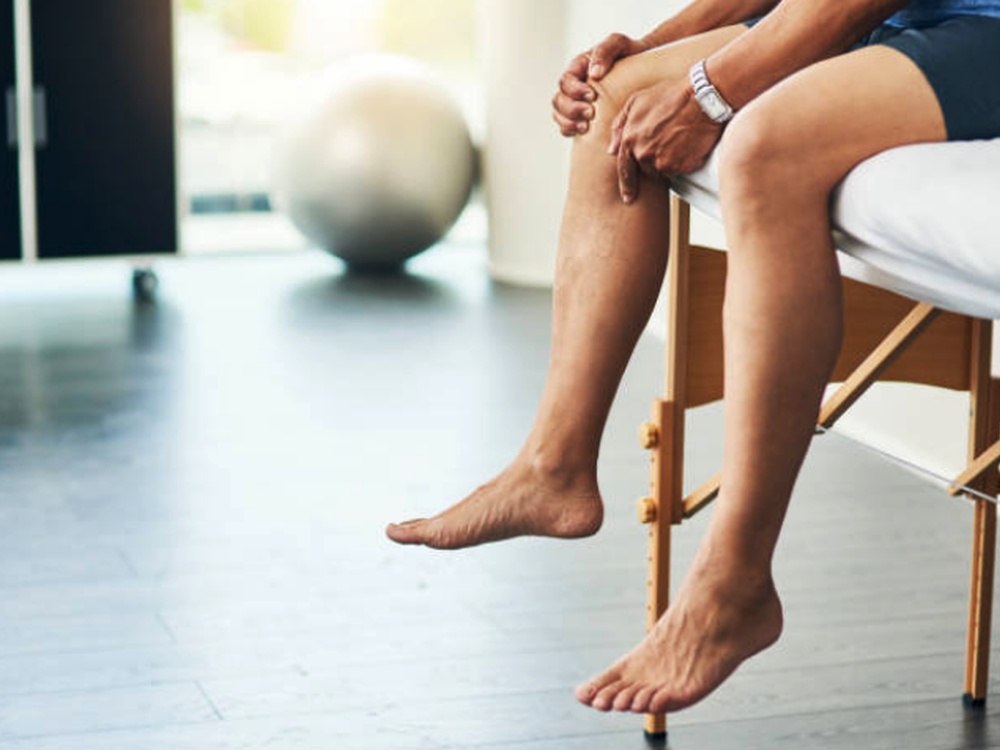Project: Vestibular Dysfunction
Base: Centre for Neuromuscular Disease, London
Research Leads: Amanda Male & Sarah Holmes
Amanda and Sarah worked with colleagues at the NHS Rare Mitochondrial Disorders Service at Queen Square, London, and here they discuss with us their project, the challenges they encountered in working during the COVID-19 pandemic, and how their research can improve quality of life for mitochondrial disease patients.
What is vestibular dysfunction, and how does it affect people with mitochondrial disease?
Amanda: The vestibular system includes the inner ear and areas of the brain that control how we sense our position and movement in the world around us. It works a bit like a spirit level in each ear, giving us our sense of balance. Many people with mitochondrial disease – around 35% of those seen in clinics – have vestibular issues, which can cause loss of balance, dizziness, blurry vision and falls.
Sarah: We partnered up with (consultant neurologists) Dr Robert Pitceathly and Professor Diego Kaski to collect data from mitochondrial disease patients, as we noticed a number of patients in clinic had dizziness and balance problems caused by the inner ear. There's really good evidence to show that vestibular rehab works, and so if we can identify these problems in mito patients, it offers a treatment option for people with mitochondrial disorders. We've seen significant improvements in balance, quality of life and confidence in people offered this treatment, so it's very exciting.
How does your project break new ground in terms of treating people with mito?
Sarah: Historically, vestibular issues have not always been identified in people with mitochondrial disease as balance problems can have a number of potential causes. For example, someone who looks unsteady might also have nerve damage, or central damage affecting the cerebellum in the brain. These changes are routinely investigated (through nerve tests and brain scans) and so balance problems have often been explained by neuropathy or cerebellar damage in the past. Identifying the inner ear as a cause of balance problems means that people can access treatment relatively easily, with really good results. This is a big step. It opens up a whole avenue of treatments that mitochondrial disease patients might previously have missed out on.
How has The Lily Foundation supported this project?
Sarah: Lily is providing 100% of funding for the project, which is amazing. Liz, Alison and the whole team always go above and beyond for the people they support, so it's a real privilege to be working with the charity and to be able to do this project. I know that patients feel very supported, and particularly through the pandemic the charity has worked very hard to ensure people don't feel isolated.
Amanda: Last year we published our study into vestibular dysfunction in mitochondrial disease patients, and this funding has allowed us to take that research forward to the next stage. After consulting with patients and other medical experts in the field, we've developed a diagnostic framework that aims to identify vestibular issues in people with mito. Vestibular testing is very specialist and waiting lists can be long, but thanks to this funding we hope to make it quicker and easier for people with mitochondrial disease to get assessment and treatment.
What stage of development is the project at now?
Amanda: We've done all the preliminary work and now we're ready to road test it. We're starting to recruit mitochondrial disease patients to trial the diagnostic framework and undertake standard hearing and balance tests. We want to recruit people with and without dizziness and balance problems so we can ensure the framework doesn't pick up issues that aren't there. We've taken a lot of what we've learnt from talking to vestibular patients about their symptoms, and specialists in dizziness and balance, and put that into a framework we can use for people with mitochondrial disease. Once we know whether it's accurate and reliable, we can go ahead and roll it out to patients.
How has the COVID-19 pandemic impacted your work?
Amanda: Like everyone, we've had to adapt to COVID. With the first lockdown all research activity had to be put on hold, so that caused a delay. We used that time to think about how we could still achieve our project goals while minimising risk for participants, some of whom are shielding and highly vulnerable. Our solution was to amend the study so we could test people in their homes, instead of asking them to travel to London. That meant making certain ethics amendments, recruiting an audiologist to do the visits, and an extra physio to do the testing online that we would have done in person. So there have been a lot of changes to navigate, but now we're ready to move to the next stage.
Sarah: Our task now is to approach potential participants to see if they're interested, and then we'll be arranging video consultations and home visits. Our audiologists will take all precautions to reduce COVID risk, with full PPE, masks, goggles and gloves, and it will be up to participants if they want to arrange a visit soon or wait for lockdown to be eased.

Testing patients in their homes is a novel approach. Do you see it as a positive step for people with mito?
Sarah: Yes, I think this will be really useful for people with mitochondrial disease, who are often very fatigued and have trouble travelling to appointments, and of course the COVID pandemic has made that even harder. Then there's the ease, speed and accessibility of the diagnosis and of course the treatment itself, which really improves quality of life. We hope this might be a new way of delivering services to people with mitochondrial disease who previously might have been wiped out for a week having travelled into central London and back for an appointment. So yes, we are very excited about the potential.
Do you see any other potential for this diagnostic framework?
Amanda: If the framework is effective and picks up inner ear problems in mitochondrial disease patients, it could potentially be used over the phone, or perhaps by clinic nurses seeing people for existing appointments, to identify people who need to come in and have specific testing. For example, there's a very simple condition where loose debris in the ear can move into the inner ear and cause imbalance, dizziness and falls. That can be treated very simply in a couple of minutes, and make a big difference to quality of life. So being able to identify these sorts of issues would be really helpful for patients.
What treatments are available to patients once they have been diagnosed with a vestibular issue?
Sarah: Sometimes vestibular dysfunction has a very simple cause and can be treated manually on the spot, such as the loose debris in the inner ear that Amanda described. Or the vestibular issue might be causing migraines, which would be treated in a very different way. Then there's longer-term treatment for causes like vestibular nerve damage, called vestibular rehab, where we can help retrain the brain to interpret data more effectively and get used to the imbalance.
How exactly does vestibular rehab work?
Amanda: Vestibular rehab is a graded, exercise-based approach and a big part of our clinical work as physios. We develop exercises that people can do at home, to help them reduce dizziness and the sense of things being blurred when they move around, and improve balance and walking. It's a progressive, targeted exercise program that helps the brain use the information it receives more effectively. People with mitochondrial diseases can really benefit from this type of treatment, so we're excited to be making it easier to access.
What helps you to stay motivated in your work during lockdown?
Sarah: We're really lucky because both of us have a lot of passion for the project and bring different things to it. We work really well together, and that goes for the other people in our team too. We keep each other going, and make sure to share the burden of any admin and paperwork, so it's actually really fun even doing the boring jobs. We've got really good teamwork.
Amanda: Another really big motivator is that we will actually be helping patients at the end of this. It's not just about doing our project, we really believe this is going to improve treatment options and make a real difference to mitochondrial disease patients. As physios that's what we're always looking to do, help people improve their quality of life. To have a charity like Lily see the value in that, and show their trust in the project by providing funding, is amazing.

